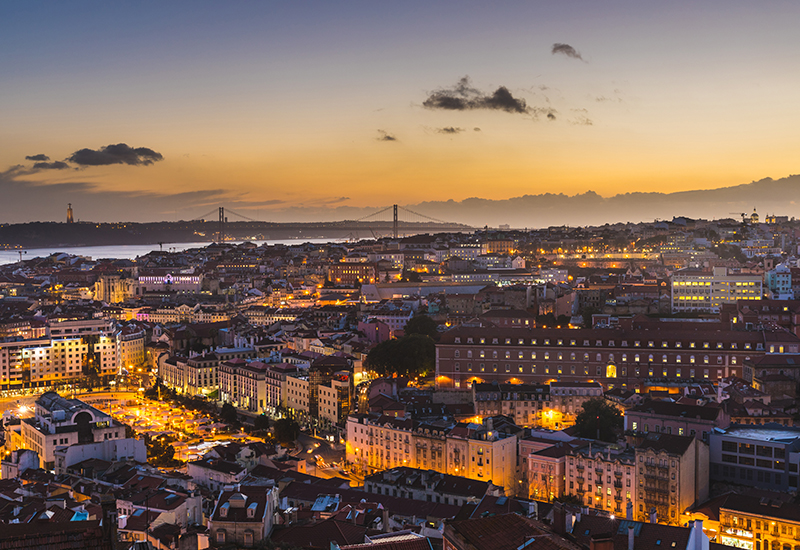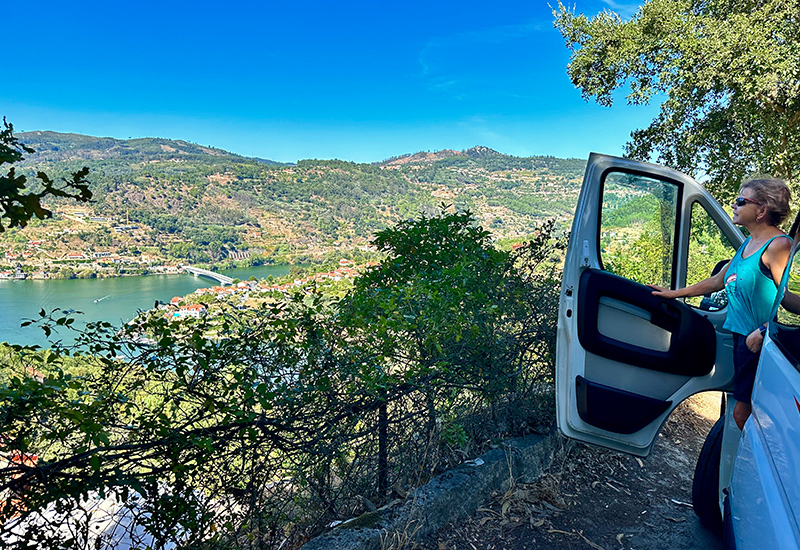Lisbon, known as the gateway for the discoveries, has been the capital of Portugal since 1255 but did you know that Portugal has had five capitals throughout its history, with one situated on an island and another in South America?
What’s more surprising to learn is that Lisbon isn’t technically the capital of Portugal due to a centuries-old mistake. This month, let us take a look at some of the former capitals of Portugal and the role they played in this country’s long and complex history.
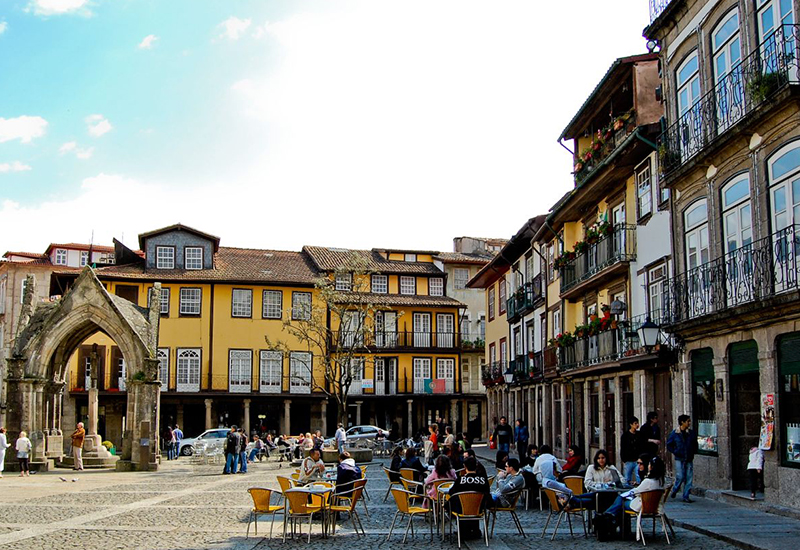
Guimarães
The city of Guimarães is often referred to as the ‘birthplace of Portugal’. Founded in 1096, then known as Vimaranes, Guimarães became Portugal’s first capital city. Following the Reconquista in the 9th century, Vimaranes was granted to Count Diogo Fernandes. His daughter, Mumadona Dias, became Countess of Portugal and ruled the country jointly with her husband from about c. 920. She founded a monastery and initiated the fortification, which we know today as Guimarães Castle, to defend it from Viking raids. One of the seven wonders of Portugal, the castle is the birthplace of Portugal’s first king, Dom Afonso Henriques, in 1111.
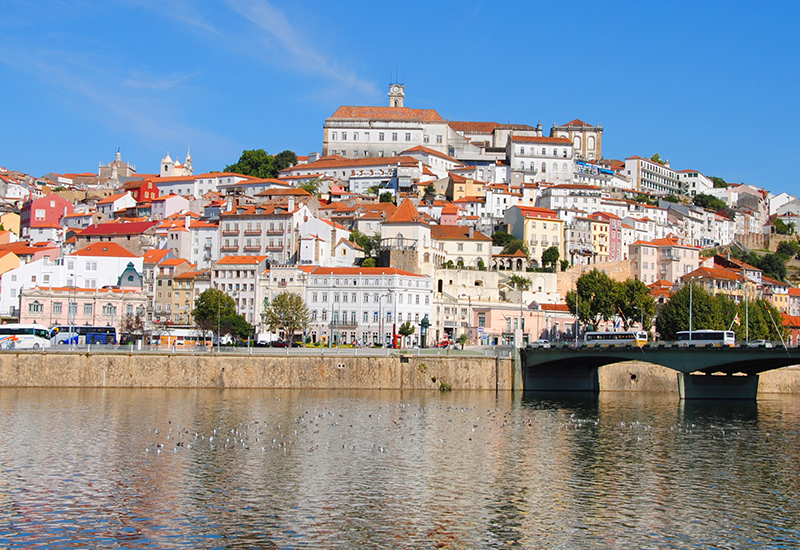
Coimbra
As the Reconquista continued under the reign of Dom Alfonso Henriques, regaining further territory to the south from the Moors, a new capital was needed to meet the demands of the Portuguese court and Coimbra was the perfect match. From 1131, Coimbra was the seat of Portuguese power and the Royal Palace of Alcáçova became the official residence. In 1290, King Dom Dinis founded Coimbra University, which was declared a UNESCO World Heritage Site in 2013. The transfer of the capital from Coimbra to Lisbon was due to the court moving and was never officially documented. Therefore, technically speaking, Coimbra could still be considered the capital of Portugal.
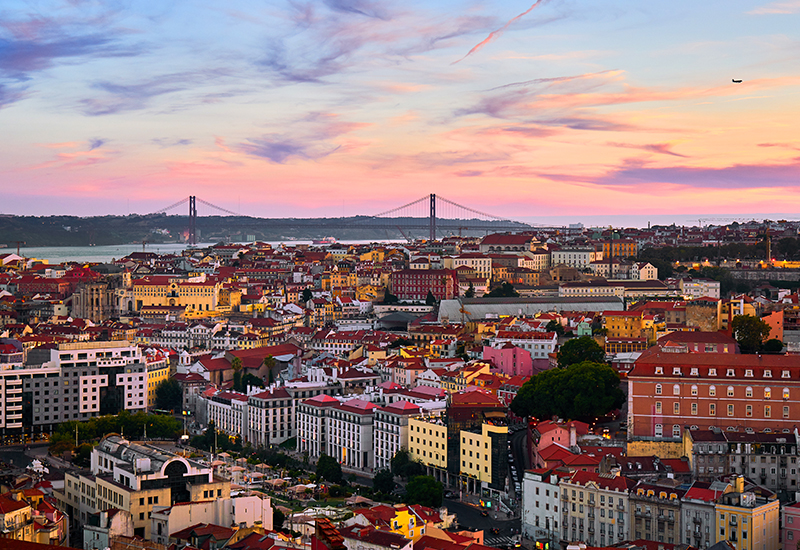
Lisbon
By 1255, the court was spending more and more time in Lisbon, which was becoming more prosperous. Having been rescued from the Moors, its estuary was a magnificent gateway for all types of goods, greatly helping the development of the region. It was King Dom Alfonso III who transferred the capital to Lisbon due to its strategic position and estuary for the kingdom’s naval fleet, which would later play a crucial role during the age of the discoveries at the end of the 15th century.

Rio de Janeiro
During the Napoleonic Wars in the 19th century, the Portuguese crown escaped to Rio de Janeiro to protect itself. Brazil was then considered part of mainland Portugal and although Rio was the capital of colonial Brazil, it also became the capital of the Kingdom of Portugal and the official residence of Dom João VI. Following Napoleon’s defeat, the Liberal Revolution of Porto in 1820 called for the return of the Portuguese court and, by 1822, the first Portuguese constitution was implemented.
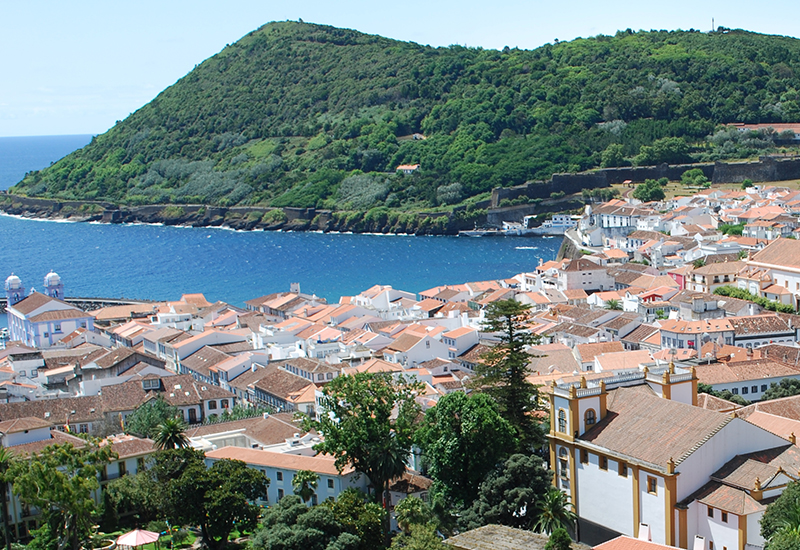
Angra do Heroísmo
Between 1830 and 1833, Queen Dona Maria II took refuge in Angra do Heroísmo on Terceira Island in the Azores during the Liberal Wars. During this time, Angra do Heroísmo became the capital of Portugal until 1833, when the monarchy was restored, thus returning the capital to Lisbon.
However, this isn’t the only time in history that the capital in the archipelago has played host as the Portuguese capital. In 1580, after the death of King Dom Sebastião in the Battle of Alcácer-Quibir, there was no direct heir to the throne, causing a succession crisis. So Dom António I of Portugal established a government in Angra do Heroísmo until a resolution was found in 1582.
Today, Lisbon has become one of the most recognised cities in the world, welcoming around 4.5 million tourists each year, who come to take in the city’s striking culture and beauty, but, to this day, the transfer of the title of capital from Coimbra to Lisbon has never been made official in any document. Officially, Coimbra remains the capital of Portugal.
Fun Fact
Did you know that the Algarve was once a kingdom in its own right? Between 1249 and 1910, the capital was Silves.
